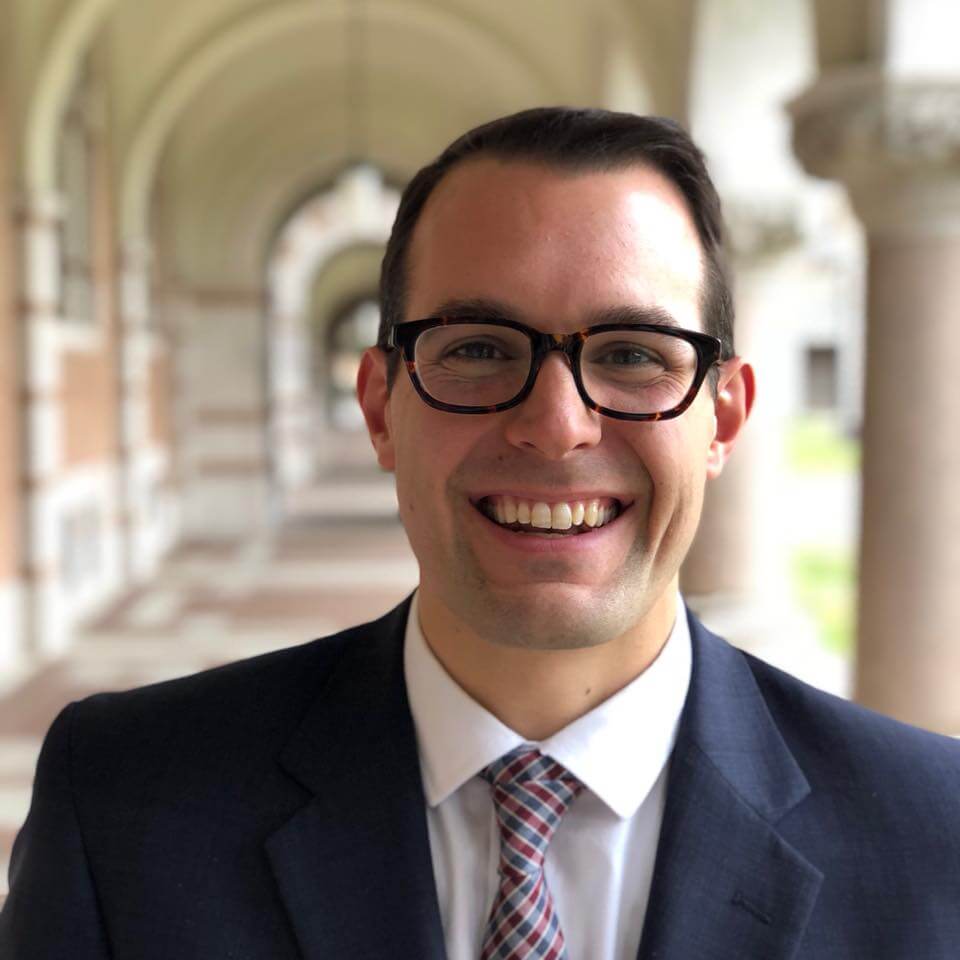“We don’t want to read an essay from an essay coach,” says Jesse Tomczak, an admissions director at American U. Before AU, he was the admissions director at Johns Hopkins and Rice. Covered in our exclusive convo with Jesse: drastic changes in admissions, the biggest surprise of his career, the truth behind how colleges determine fit, and the applicants that stood out to him. Delve into our exclusive insider interview.

Exclusive Insider Interview: Admissions Director, American University
SocratesPost: Alright Jesse! How did you get to become an admissions director at AU?
That was my first taste of admissions field. My first two years, I worked in a liberal arts college in Virginia. I wanted to move back to the DMV area where I grew up. That’s where I ended up at Johns Hopkins and worked there for 3 years. That’s where my eyes were opened to the complexities of the industry.
SocratesPost: How were you exposed to the complexities of college admissions?
Jesse at AU: I was exposed to a much more selective and refined admissions process. This is more than staying in hotels and processing applications.
For hundreds of universities out there, it’s a very calculated refined process.
Once I realized that, I got it into my head that I was going to be in higher ed for the next few decades.
SocratesPost: What do you love so much about admissions?
Jesse at AU: I really like the selection of the class, shaping of the class each year. I was able to take ownership of that at Hopkins. Then that brought me to Houston for two years. My third institution was Rice. I led their international admissions.
That was rewarding. Ultimately, I really enjoyed my time at Rice and decided to move back about 5 months ago for personal reasons. I wanted to be closer to family that were getting older.
My fourth and current institution is American University. What’s exciting about my role here is I’m delving into the realm of admissions that’s new: veterans, transfers, and URM.
SocratesPost: What’s a day in your life as an admissions director like?
Jesse at AU: Depends on the time of year. One of the other highlights of the admissions field is the cyclical nature of the work. Every few months, the work is changing. In the summer, it’s usually time to catch our breath, analyze what we’ve done over the last year and over the last few admissions cycles. It’s one time in the 9-10 month window where we can catch our breath.
SocratesPost: What typically happens after summer for admissions professionals?
Jesse at AU: In the fall, we’re traveling, posting info sessions, on the road promoting the institution, talking about deadlines, trying to answer any questions the students have. We transition again at the end of recruiting to process and review the applications. Once you get burnt out from the road, you get to stare at a computer screen for 3-4 months, which I love. At the end, you’re burnt out from writing the write-ups.
From late March to early April, we focus on the students we just admitted and getting them to attend. Every day there’s something new.
In the summer, we’re setting our 1-3 year plan. We’re also going through some hiring processes. In summary, the excitement surrounding the changing landscape whether it’s the admission cycle or the landscape of education or how things evolve every year, whether it’s legislation or processes. Within an 8 year career, I’ve seen some drastic changes in the four institutions.
SocratesPost: When you say drastic changes, what are some that come to mind?
Jesse at AU: The cost of education is a hot topic. The sticker price is continuing to increase. Trying to assess the value of the education and making sure that price point doesn’t become too absurd. And as the cost of attendance increases, schools like Rice, Hopkins, and AU can find more financial resources. Cost and financial aid is something schools need to continue to think about. It’s going to become a more challenging proposition.
Let’s say we’re talking about a school that charges $100k per year US, are there other ways to get an education and become a competent US citizen? Will there be competition for traditional ways of education?
SocratesPost: What other changes in admissions have you noticed as admissions director at Rice, Johns Hopkins, and now American?
Jesse at AU: Beyond that, diversity on college campuses is something I’m passionate about, whether it’s first gen or low income, bringing international perspectives to influence the student experience. A lot of schools are doing a great job at that.
SocratesPost: You’ve been an admissions leader in four respected American institutions. What’s been the biggest surprise of your career in admissions so far?
SocratesPost: Before admissions officers decide which students match their criteria of “campus fit,” somebody must have laid out the aforementioned criteria. How do institutions decide what their criteria is?
Encouraging universities that value things beyond the test score and GPA. They’re important but not the sole or only thing influencing the admissions decision.
SocratesPost: If test score and GPA are important but not the sole thing, what else is it then?
SocratesPost: I’m sure you’ve read thousands of applications while trying to shape the freshman class, taking into account what you just said about holistic admissions. Who really stood out to you?
…[my colleagues] never go down the corridor to another colleague and say “look at this perfect test score.”
SocratesPost: What aspects of an application would inspire an admissions officer to talk to another colleague about it?
SocratesPost: These topics you’re willing to talk about over lunch with your colleagues — where are they found in student applications?
